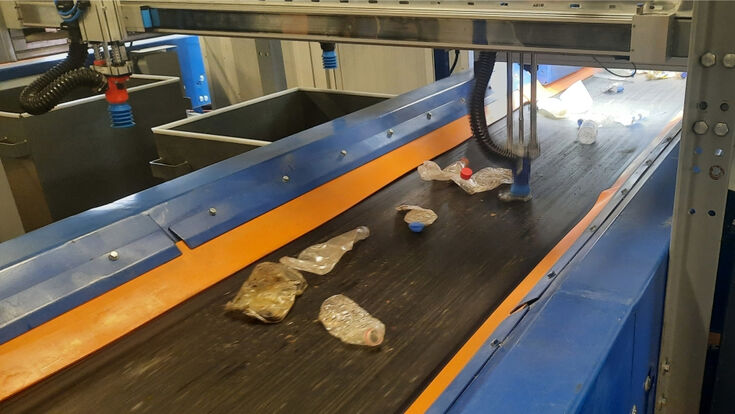Discovering the Relevance of Reclaim Waste in Sustainable Waste Monitoring Efforts
In the realm of sustainable waste monitoring, the concept of redeeming waste arises as a vital element that requires attention and factor to consider. By analyzing the intricate interplay in between waste reclamation and sustainable waste monitoring initiatives, we start to decipher a story that expands beyond traditional waste disposal approaches.
Significance of Reclaiming Waste
Why is redeeming waste vital in lasting waste management practices? Recovering waste plays a critical function in lasting waste management by decreasing the amount of waste sent out to landfills, saving all-natural sources, and minimizing ecological effect. By recovering waste products with repurposing, upcycling, or recycling, important sources can be recuperated and reestablished right into the manufacturing cycle, lowering the need for virgin materials. This not only decreases the strain on natural resources however likewise assists in decreasing energy usage and greenhouse gas exhausts connected with the removal and processing of raw products.
Moreover, reclaiming waste fosters a round economic situation where products are reused and recycled continually, promoting a much more sustainable and reliable use of resources. It additionally adds to the development of green jobs and economic development in the recycling and waste administration sector. By including waste improvement techniques right into waste administration strategies, areas and services can relocate towards a much more sustainable future, where waste is checked out not as a burden however as a useful source.
Benefits for the Setting
In the realm of sustainable waste administration, the method of redeeming waste not only minimizes and preserves all-natural resources waste sent to landfills however also generates substantial benefits for the environment. By redeeming waste materials, such as metals, glass, plastics, and raw material, the environmental influence of source extraction and manufacturing is decreased (Industrial waste water treatment). This leads to reduced power intake, reduced greenhouse gas emissions, and lower degrees of air and water air pollution related to removing basic materials
Furthermore, reclaiming waste assists in the conservation of biodiversity and natural environments. It minimizes the demand for land fill space, thus decreasing land degradation and habitat destruction. Additionally, the process of reclaiming waste usually entails recycling and repurposing products, which subsequently lowers the need for new products and the connected energy and resources required for their production.
Contribution to Circular Economy
Playing a critical role in fostering sustainability and resource efficiency, reclaiming waste makes a substantial contribution to the round economic situation. By reestablishing disposed of products back right into the production cycle, reclaiming waste minimizes the demand for virgin sources, therefore reducing the total ecological impact of resource removal and intake. This procedure lines up with the principles of the round economic check my source climate, which emphasizes making best use of the value and utility of sources with closed-loop systems.
As an outcome, reclaiming waste helps to produce an extra lasting and resilient economic situation that is much less reliant on limited sources and prone to disruptions in the supply chain. Eventually, by integrating waste improvement methods right into waste monitoring businesses, initiatives and communities can proactively contribute to building a more regenerative and round economic situation.
Reducing Garbage Dump Waste

Education and learning and awareness projects on proper waste disposal and the relevance of decreasing, recycling, and recycling can also play a critical duty in minimizing landfill waste. By focusing on the decrease of landfill waste, sustainable waste administration practices can be improved, leading to a much healthier environment and economic climate.

Future Effects
Taking into consideration the fast advancements in modern technology and evolving ecological difficulties, the future implications of lasting waste management are positioned to transform existing techniques. The adoption of innovative modern technologies such as man-made intelligence, Internet of Points (IoT), and blockchain can considerably enhance waste surveillance, sorting, and reusing procedures. These improvements enable real-time monitoring of waste streams, identification of recyclable products, and improved effectiveness in resource allotment.
In addition, the shift in the direction of a circular economic look at here situation model, where sources are reused, reused, or upcycled, will certainly end up being significantly prevalent. This shift not only minimizes the reliance on virgin materials however also reduces waste generation, causing a more ecologically pleasant and lasting waste management technique.
In addition, the integration of sustainable waste monitoring techniques right into broader sustainability programs is anticipated to obtain traction. Industrial waste water treatment. Organizations and federal governments worldwide are acknowledging the importance of waste reduction and recycling in combating environment change and promoting a circular economic climate. Therefore, plans and laws supporting sustainable waste management their website efforts are likely to become much more rigid, driving sectors in the direction of even more eco-friendly practices
Final Thought
In conclusion, the value of recovering waste in sustainable waste management campaigns can not be overstated. By recovering waste, we can minimize environmental influence, contribute to a circular economic situation, and lessen land fill waste.
By analyzing the elaborate interplay between waste reclamation and sustainable waste monitoring campaigns, we begin to decipher a narrative that expands past traditional waste disposal techniques. Reclaiming waste plays an essential duty in lasting waste administration by reducing the quantity of waste sent out to land fills, preserving natural sources, and decreasing environmental influence. By incorporating waste reclamation practices into waste management areas, organizations and strategies can move towards a more lasting future, where waste is watched not as a burden however as an important resource.

Comments on “Reclaim Waste Melbourne: Proven Techniques for Efficient Liquid Waste Removal”